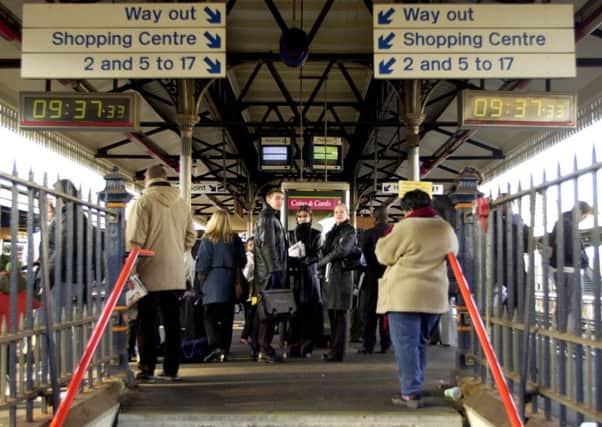Martin Flanagan: Wheels come off for Stagecoach at SWT
This article contains affiliate links. We may earn a small commission on items purchased through this article, but that does not affect our editorial judgement.


In March 1999, Stagecoach swooped to buy Citybus, the second biggest bus operator in Hong Kong. The Scottish group quit the former British colony when it sold Citybus in 2003, but the negative development on home turf shows that, in transport as in all other business sectors, the wheels go round and round.
• READ MORE: Stagecoach loses SWT franchise to rival FirstGroup
Advertisement
Hide AdAdvertisement
Hide AdIt won’t be any easier for Stagecoach to stomach the Department for Transport’s decision that the partner of Chinese state-owned MTR is its arch-rival, Aberdeen-based FirstGroup.
Stagecoach will still have rail operations in the UK: East Midlands trains, and, in conjunction with Sir Richard Branson’s Virgin, the West Coast and East Coast lines, as well as its quaint Isle of Wight railhead.
But SWT has both practical and symbolic status: the biggest and busiest of UK commuter franchises, and the first UK rail privatisation 21 years ago. The famous divorce of wheel and track that, with its often coffee shop-like mystifying multipicity of ticket options, continues to have its critics as well as supporters.
Bank needs bigger panic room
The Bank of England has set new stress tests for seven of Britain’s leading banks’ balance sheets. Apart from the conventional economic pressures, however, this time the tests also envisage a swarm of locusts, a global pandemic, an asteroid heading this way and a nuclear exchange following a misunderstanding. And a stock market correction.
I exaggerate, and perhaps after the financial crash we should be glad our banks are much stronger financially to try and withstand what, to use a neologism, we might call a “synchronicity of shocks”.
• READ MORE: Lenders to face foreign scenario in BoE stress test
But the Bank is certainly laying the doom on with a trowel. Barclays, HSBC, Lloyds, NatWest-owning RBS, Santander UK, Nationwide and Standard Chartered have a postulated scenario of a surge in base rates; global and domestic recession; plunging house prices; stagnant trade, further misconduct costs and more competitive impact from challenger banks.